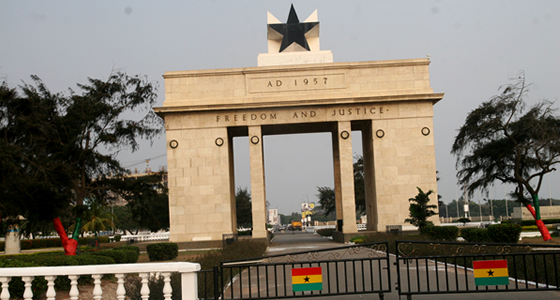 Ghana is to host the 4th Commonwealth Africa Regional Meeting for Heads of Anti-corruption Agencies from May 26 – 30.
Ghana is to host the 4th Commonwealth Africa Regional Meeting for Heads of Anti-corruption Agencies from May 26 – 30.
It will provide a platform for sharing emerging practices and country innovations in the fight against corruption and the promotion of good governance.
The conference on the theme: “Coordinating National Anti-Corruption Agenda within Commonwealth Cooperation,” is being organised by the Commonwealth Secretariat, in collaboration with Commission on Human Rights and Administrative Justice (CHRAJ) and the Economic and Organised Crime Office (EOCO).
A statement issued in Accra and copied to Ghana News Agency by CHRAJ today said combating corruption had been identified by the Commonwealth Secretariat as a crucial part of its work.
This is due to the commitment of Commonwealth Heads of Government to root out systemic corruption at both national and international levels.
“The Secretariat’s Anti-Corruption work has, thus, been guided by the Framework for Commonwealth Principles on Promoting Good Governance and Combating Corruption.
“To this end, Commonwealth Secretariat has established the Network of Anti-Corruption Agencies (ACAs) in Commonwealth Africa to enable South-South collaboration and learning,” the statement said.
The Network seeks to broker the exchange of ideas and good practices among Commonwealth African countries and to encourage the sharing of experience in areas of comparative advantage, general political buy-in processes and pressures for reforms.
The CHRAJ statement said the Commonwealth Africa Anti-Corruption Centre had also been established in Botswana as the prime vehicle for improving coordination and strengthening the capacity of Anti-Corruption agencies in Commonwealth Africa.
It said the Centre as a flagship project provided a visible and tangible demonstration of the Commonwealth Secretariat’s commitment to support its members’ anti-corruption efforts, with the potential for replication across the Commonwealth.
According to CHRAJ, the conference is essentially a peer-to-peer review meeting, where Heads of ACAs will share strategies, best fit solutions and approaches to tackling corruption and promote good governance on the continent.
The statement explained that there was an international recognition that corruption was an obstacle to sustainable development and could undermine development in several ways.
It said corruption resulted from a variety of economic, institutional, political, social and historical factors and flourishes when democratic institutions were weak, laws were not enforced, political will was lacking and when citizens and media were not allowed to be partners in democracy.
Corruption and unethical behaviour by public officials are serious threat to basic principles of democratic government, undermine public confidence in democracy and threaten the rule of law, the statement stated.
It said the African Union 2012 report indicated that more than 148 billion dollars is lost to corruption in Africa…“Whilst, a World Bank research also revealed that corrupt public officials in developing countries receive between 20 and 40 billion dollars in bribes annually.”
The key aim of the Conference is to enhance south-south learning and the sharing of country experiences through strengthened network of Heads of Anti-Corruption Agencies in Commonwealth Africa.
The Commonwealth takes the view that there is no better method of building institutions than strengthening communities of practitioners, building professional networks and creating opportunities for countries to exchange best fit solutions.
The Conference also aims to: Strengthen relations between Anti-Corruption Agencies within the Commonwealth Africa; assist delegates to acquire a firm grasp of the value added functions of emerging best fit practices and shared innovations.
It would also assist delegates to appreciate diversity and commonality of strategies to combat corruption on the Continent.
It also seeks to assist delegates to appreciate the level of individual country performance and challenges in dealing with corruption, identify weaknesses and develop anti-corruption strategies.
Source: GNA























